#FORESHADOWING
Explore tagged Tumblr posts
Text

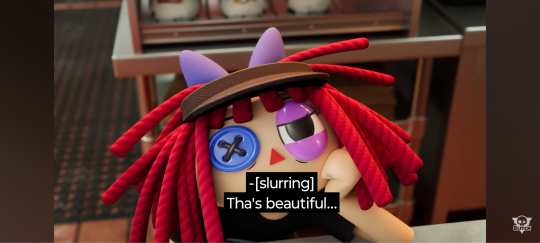
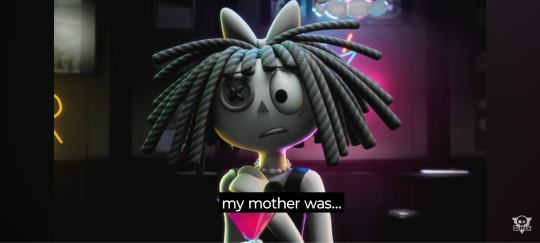
gooseworx you absolute genius in subtext!
119 notes
·
View notes
Text
I’m getting violent
And I’m gonna kill Ragatha.
#Jax#Bunnydoll#ragatha#tadc#the amazing digital circus#the amazing digital circus Jax#tadc jax#tadc Ragatha#untitled#episode 5 tadc#tadc episode 5#foreshadowing#the amazing digital circus Ragatha
47 notes
·
View notes
Note
Is the Bael the Bard story foreshadowing that the coming Stark line will come from a Bastard?
I'd say that it foreshadows the ruling Stark line being carried on through the female line (via a Winter Rose) but if there's a bastard involved (also via a Winter Rose) then... well, that's kind of what I've been counting on. 😁
24 notes
·
View notes
Text
Oh my god
All puppets just sitting there crying after the King of Puppets' death in the main game
Were Neowiz depicting US, THE WHOLE LOP FANDOM depressed and ruined after finishing the dlc?
Cause I'm crying for the fourth day in a row here
#what is it some kind of timeline joke☠️#the puppets just truly knew WHAT YOU HAVE DONE#you killed the best boy#it was so cruel#i can't remember last time i cried so much over the game#it's beautiful#and heart ripping☠️#lies of p spoilers#lies of p#lies of p overture#lies of p game#lies of p romeo#lies of p dlc#FORESHADOWING
23 notes
·
View notes
Text
'The Wizard and I' is such an underrated song that more people are not talking about! Up until this point in the story Elphaba is seen as a self confident young woman until she reveals all of her insecurities in one banger of a song. AND THE FORESHADOWING!! This is one of my favorite songs in the entire musical!!
19 notes
·
View notes
Text

I assumed this guy was a NPC but he has his own room for some reason in the intermission. he also doesn't have and X over his picture so Caine must know he's just lurking around the circus.
17 notes
·
View notes
Text

The mysterious demon snarled in defiance before Satan.

Heat radiated off him and his glowing eyes blazed with fury.

As my demon lover took a stand against his lord,

I felt my love for him burn even hotter than the fiery depths of Hell.

Emberlynn Pinkle you depraved little genius
#helluva boss#emberlynn pinkle#helluva boss emberlynn#stolas helluva boss#helluva boss stolas#blitzø buckzo#helluva boss blitz#hazbin hotel#mastermind helluva boss#weeaboo boo#foreshadowing
3K notes
·
View notes
Text
you can’t hold on forever




but you can try
lyrics from lovesick by laufey
#he falls and falls and falls and falls and falls and falls and falls and falls and falls and falls an falls and falls and falls and falls#foreshadowing#this could’ve been one long image but nooo tumblr wouldn’t allow it >:(#sxf#spy x family#loid forger#spyxfamily#yor forger#twiyor#anya forger
3K notes
·
View notes
Text
Avoiding Plot Holes by Seeding Doubt
Having an “expert” character conveniently fuck up right when the plot needs it to happen, when they otherwise would never, always loudly looks like the hand of the author sabotaging things. Which is exactly what’s happening.
However, if you set up that scene in a way where that fuckup is possible and warranted, you can turn “this is so contrived” to “omg I knew that was going to happen”.
Some suggestions!
Firstly, if we’re dealing with humans, humans are not machines. Variability in skill even at the expert level happens. Go watch the Olympics or any professional sporting event and people have terrible days all the time.
In fiction, a conveniently terrible day because that’s just how this works doesn’t fly. Diablos ex machinas tend to go over easier than deus ex machinas, but a character failing at a critical challenge in the narrative for no reason screws with a lot of the tension and expectations. “For no reason” takes no effort by the author to set up and pay off, and it reads as cheap.
Behavioral variables
I am a novice archer. I write expert archers. I do not write supernaturally accurate archers. From the very beginning of my story, my expert, with four centuries of experience, isn’t nailing perfect kill shots with every hit. A) he doesn’t need to and B) leaving his enemy to die slowly and painfully is a low he will absolutely stoop to if he thinks it’s warranted.
He’s as good as he has to be and if he gets the job done, he doesn’t care if it’s a little messy. Him being messy and overconfident is what gets him in the end, too. If he’s trying, he’ll do better, but most of the time “eh, I got close enough, they’ll die eventually” is his mindset.
“Expert” in fiction being “this is a character who will reliably pass the challenges set up for them by the narrative”.
So if you have an “expert,” allowing them to get a little bit lazy and overconfident, or simply not think of themselves as needing to be perfect in a given situation, you allow yourself a lot of wiggle room for them to majorly fuck up.
Doesn’t work very well if I throw my archer into an archery tournament, but I haven’t done that, and I’ll get to that later.
Environmental variables
Using the archery example once again: Archery is finnicky and precision is key. So if you’ve got your archer, or any marksman, in a windy environment, they have to work that much harder to factor in the wind when setting up their shot.
If it’s rainy, or the sun’s in their face, or it’s dark, or it’s loud and they can’t focus, these things aren’t exact data points the audience is going to do the math on. Or, if they and their enemy are moving, which, in combat, is highly likely.
Physiological variables
Maybe your character didn’t get enough sleep, or they’re stressed about this moment, they’re cracking under the pressure, they’re doubting themselves, the enemy got into their head, or they’re distracted worrying about something else. Or they got drunk the night before, they ate too much or too little. They’re sick, their hands are sweaty, they’ve got a sinus headache. They’ve got cramps, or hot flashes, or earlier they pulled a muscle and it still tweaks.
These are all, once again, introducing doubt into the narrative so that, when they fuck up as the plot demands, the audience should consider “well they weren’t at their best, I believe it”.
—
The sloppy way to do this is to go, in the moment:
“But because it was windy, X missed his shot”.
Is this the first time the reader is learning that it’s windy? Pretty convenient to introduce it right as it becomes important.
Rather, establish your variable beforehand in a disconnected moment. Try to ground it to a different element, otherwise it might look like it’s being mentioned for no other reason than “this is important”. Or, if it’s environmental, bury it with the other sensory descriptors.
When establishing the scene and setting, casually mention how the wind is interacting with the characters—making their hair a mess, throwing pollen everywhere, making skirts billow, etc.
Have another character complain about this variable bothering them
Have the character instantly regret the decision they made the night before for unrelated reasons. Like, if they got drunk, now they’ve still got a headache.
Depends on the story and the audience, of course, but I personally think having the narrator explicitly call out the variable fuckery going on reads a bit hammy. I like letting the audience figure out what went wrong with the clues I give.
If the scene demands, I'll also let my characters get annoyed and upset about their shots going wrong and blaming the environment. So long as it's not "hand of the author here to tell you what went wrong" you've got options.
I wouldn’t pull this trick too many times, otherwise your “expert” ends up consistently not an expert and then their sudden success looks suspect and contrived.
If you are writing some sort of tournament where this character is deliberately setting themselves up for success and is considering all these variables… a great example I like is Todoroki vs Bakugo in My Hero Academia season 2.
Dude is an uncertain mess throughout the rest of his tournament once his “fuck you dad I’m gonna win by half-assing it” suddenly isn’t enough to beat Midoriya. He’s forced to face some Tragic Backstory and it throws him off his game—establishes doubt.
He has a string of successes once he starts taking baby steps with the other half of his powers, and in the finale, he’s up against someone where he really does have to give it his all if he wants to win. His brute force powers are up against someone who has honed his very specific and powerful abilities for a decade.
And he can’t do it.
The final fight stops being a matter of power metrics and who would win if they both were competing at their best with all the tricks in their playbook available, which is what most of the tournament had been up to this point.
Basically—it stops being a numbers game, and starts being an emotional one. If you have a character you need to fail at something, but who wouldn’t otherwise, consider shifting the battle from external to internal, so the task failure is just the catalyst for the real meat of the story: what this loss means to this person in the long run.
**Side note there are of course a ton of anime tournament fights probably better than this one, Rock Lee’s whole arc against Gaara is one of them, I just don’t remember it well enough to comment on it.
Not every reader is going to be savvy enough to go “well that’s going to be important later”. Use betas and editors to help gauge how vague or obvious your foreshadowing is.
But even if you have readers sussing out your foreshadowing: Part of the fun is figuring out how the journey will end, even if we know when and where. Otherwise tragedies and prequels wouldn’t be made.
The dramatic irony of knowing variable fuckery is at play when the character is unaware can be so fun as the audience. Horror films are kind of built on it.
#writeblr#writing#writing a book#writing advice#writing resources#writing tips#writing tools#plot holes#foreshadowing
876 notes
·
View notes
Text
Foreshadowing Ideas
• Character themes/motifs. I’ve heard of one writer who tries to give each character their own theme for similes, metaphors, descriptions, etc so there’s like a theme to the way they’re portrayed. You could use that to foreshadow notable secrets about the character that will later be revealed, or if at any point they’re disguised then you can use that to tip off the reader that they have the same motifs and so might be related/the same person
• Tiny details hidden in lists. Say the MC was trying to work out the identity of a bad guy, who we know was wearing a red shirt on the day of a big bad event. A few chapters later, MC is checking around their best friend’s room to find them, with the place its usual mess with discarded takeaway boxes, the bed unmade, a red shirt left on the floor that could use a good sweep. The red shirt might not click with all the readers, but those who register it upon their first read will eat it up
• Inconsistent behavioural patterns. Once we have a good idea of what a character is like, having them act out of character can set off alarm bells and make us question what’s occurred to make them act this way. Let the other characters register it too, if it’s reasonable that they would, but let them ultimately brush it off quite quickly to keep it subtle. Or just call it right out, whichever you prefer
• Unreliable narrators. Let one character say one thing and a second character say another, even if they both ultimately agree on the same thing but get one or two small details wrong. Ideally do this two or three times in order for the reader to know it’s not just a mistake in the plot but an intentional inconsistency, but even if it’s only done once and it’s taken as a mistake it’ll still slot together like puzzle pieces in the end and they’ll be kicking themself for dismissing it
• In-universe red herrings. If you’re going to add red herrings as foreshadowing, it’s helpful if the red herring aligns with the intentions of someone person aware of the upcoming plot twist who’s trying to control the narrative. Say the plot twist was the reveal of a mysterious character’s identity to be the best friend of the MC, the best friend might have deliberately thrown the MC off their scent by planting suspicions in the MC’s mind that a different character was the mysterious character’s identity all along. This is less about foreshadowing the actual reveal, of course, but rereads will be a punch to the gut when everyone realises that all this misinformation and red herring business came from someone trying to cover their own ass rather than coming from misunderstandings or multiple other random sources
#writing#writers#bookblr#writeblr#book#writing inspiration#writing advice#on writing#writing tips and tricks#writing tips#writing help#foreshadowing#how to write#writersociety#writersnetwork#writers of tumblr#writer#writers on tumblr#writerscommunity#writerblr
4K notes
·
View notes
Text
"Everybody who get's close to me dies."




#arcane isha#isha and jinx#jinx and isha#arcane season 2#arcane season two#arcane jinx#jinx posting#jinx arcane#arcane poster#arcane#riot games#riot games arcane#netflix arcane#jinx league of legends#league of legends#arcane netflix#foreshadowing#subtle foreshadowing#arcane theories#arcane theory#Netflix#isha arcane#isha edit#isha#jinx#powder#powder arcane#arcane powder#league of lesbians#paint the town blue
2K notes
·
View notes
Text
"I don't know if I should add this, it probably has too many details already."
ADD IT. PLEASE ADD IT. ADD MORE.
Overwriting is about prose; when you get to into it about the colors of flower petals and the intricacies of Victorian era wallpaper. It is absolutely NOT when you include immersive details.
Like a wanted poster while your character waits at the register, only way later does the man on the poster show up.
Fit little things in anywhere you can. No they aren’t imperative but they are though.
Don't spend ages describing the way light reflects off a glass of water. Focus on it a reasonable amount and then move onto to the messy stack of books beside it. Then the hastily folded and stuffed clothes peeking out of the dresser. Show us the dust collecting on a bell at the hotel check in, everywhere except the tip. Show me the heat of her breath hitting to cool air and making a brief cloud of fog. Then move onto the frost eroding tree bark. Half empty salt and pepper shakers in a diner. Wet paw prints on the floor after a rainstorm. Muddy tire tracks leading off road. Anything that doesn't take us completely off quest. Immerse me with the narrative. Drown me in the details. But don’t go all bible-prose on my ass.
It doesn't have to be 'important' to the plot to be important to the experience.
#writing#creative writing#writeblr#prose#literature#words words words#writers#writing humor#writers on tumblr#writers and poets#writers block#ao3 writer#on writing#writing funny#aspiring writer#writerscommunity#writers on writing#writing community#writblr#descriptive#writer#wip#writers life#foreshadowing#writing advice#writing adventures
601 notes
·
View notes
Text
Aaric, who can see the future: "She'd make a great politician, or a general maybe? Definitely nobility."
Xaden, who can read intentions: "With that speech? At least a duchess."
#Aaric Graycastle#Cam Tauri#Xaden Riorson#Duke of Tyrrendor#Violet Sorrengail#Dutchess of Tyrrendor#Onyx Storm#Rebecca Yarros#The Empyrean 4#precognition#fan theories#foreshadowing#intinnsic#signets#but his intentions lol#thanks TikTok#Onyx Storm quotes
757 notes
·
View notes
Text
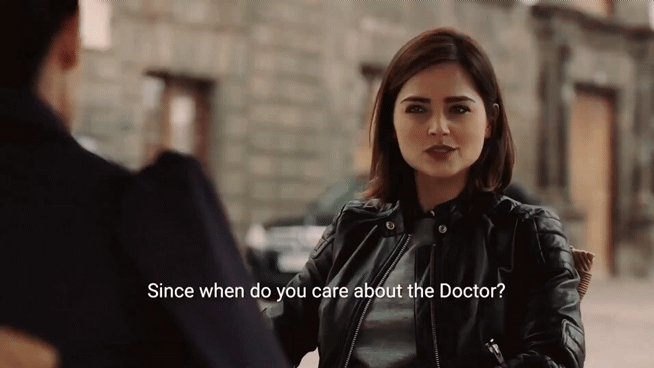
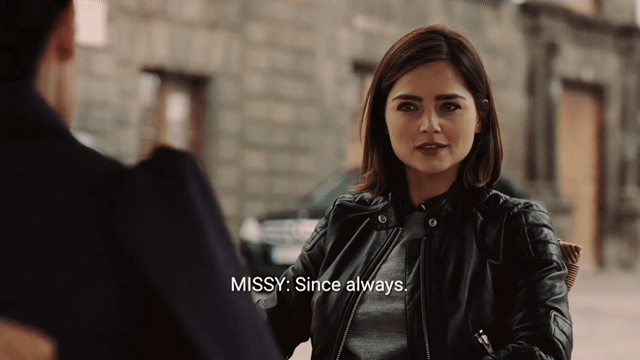
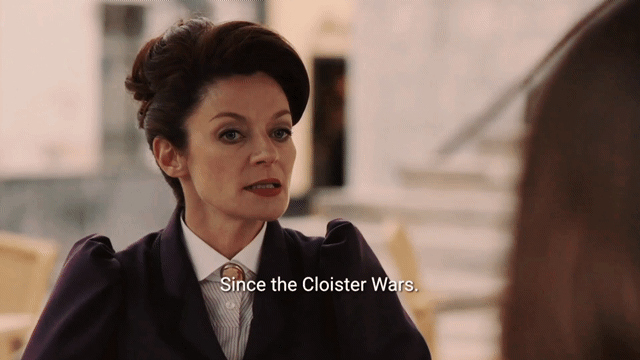


I know Missy was just messing with Clara, but this scene hits different after the Timeless Child arc.
#one of those was a lie. Can you guess which one?#foreshadowing#at least i think so#since he was a little girl😭#timeless child#clara oswald#missy doctor who#the magician's apprentice#twelfth doctor#thirteenth doctor#the doctor#the master#13th doctor#12th doctor#doctor who#dw#gifs#gifset
547 notes
·
View notes
Text
Let's talk about foreshadowing.
Foreshadowing can add a lot of depth to your writing and make it more exciting for the readers. They create a sense of coherence and satisfaction when future events unfold as hinted—or shock if they don't.
Here are some tips for effectively using foreshadowing in your novels and books:
Plan ahead. Foreshadowing works best when it's woven into the fabric of your story from the beginning. As you outline your plot, think about key events and revelations you want to foreshadow, and strategically place hints and clues accordingly.
Use subtlety. Foreshadowing doesn't have to be obvious or heavy-handed. The best foreshadowing is often subtle and understated, leaving readers with a sense of intrigue and curiosity rather than outright prediction.
Establish patterns & motifs. Look for opportunities to establish recurring patterns, motifs, or symbols that can subtly hint at future events. These can be visual, thematic, or even linguistic cues that tie into the larger narrative arc of your story.
Create tension. Foreshadowing is most effective when it creates tension and anticipation for the reader. Use foreshadowing to hint at potential conflicts, obstacles, or twists.
Reveal gradually. Foreshadowing doesn't have to be limited to one-off hints or clues. Instead, consider how you can layer foreshadowing throughout your story, gradually revealing more information as the plot unfolds.
Pay attention to timing. The timing of your foreshadowing is crucial. Introduce hints and clues at strategic points in your story, building anticipation and suspense without giving too much away too soon.
Revisit foreshadowing. Ensure that foreshadowed events are eventually fulfilled or addressed in the story. Revisiting earlier hints or clues can provide a satisfying payoff for readers and reinforce the narrative coherence.
Balance subtlety and clarity. Foreshadowing should be subtle enough to intrigue readers without giving away major plot twists too early. Aim for a balance where foreshadowing is noticeable upon reflection but doesn't detract from the immediacy of the story.
Let's look at some ways to incorporate foreshadowing:
Symbolism: Symbolic imagery or motifs can serve as subtle foreshadowing devices. Think about objects, settings, or descriptive details that can serve as symbolic foreshadowing. A recurring image or object, for example, might subtly hint at future events or themes in the story.
Dialogue clues: Characters can drop hints or make cryptic remarks that foreshadow upcoming events. Dialogue is a natural way to introduce foreshadowing without being too obvious.
Character reactions: Pay attention to how characters react to certain situations or events. Their emotions or responses can foreshadow future conflicts or revelations.
Subtle descriptions: Incorporate subtle descriptions or details that hint at future events. These can be easily overlooked on a first read but become significant upon reflection or when the foreshadowed event occurs.
Dreams/visions: Dreams, visions, and other forms of altered consciousness can be effective vehicles for foreshadowing—they can hint at an upcoming event, or explore characters' subconscious desires and fears. This method can sometimes be either blatant or subtle depending on how it is incorporated.
Foreshadowing through setting: Use the setting to foreshadow events or developments in the story. For example, a stormy night might foreshadow conflict or turmoil ahead, while a serene setting might signal upcoming peace or resolution. (On the flip side, this can be used to catch readers off guard, like a "calm before the storm" type of situation.)
Parallel storylines: Foreshadowing can occur through parallel storylines or subplots. Events in one storyline can subtly hint at future developments in another, creating anticipation and intrigue.
Recurring themes: Identify recurring themes or motifs in your story and use them to foreshadow future events. These thematic elements can serve as subtle hints or clues for attentive readers.
Misdirection: Foreshadowing can be used to misdirect readers and create suspense by hinting at one outcome while actually leading to another. (See my post on misdirection for more!)
Happy writing! ❤
Previous | Next
#writeblr#writing#writing tips#writing advice#writing help#writing resources#creative writing#foreshadowing#deception-united
3K notes
·
View notes
Text
Okay, this post has me thinking.

What if those totally Aziracrow-coded suits are a Clue for not only what's coming at the end of S2E6, but I'm hopeful that it's about their future, too. Because look at them. LOOK AT THEM.

They are even separated by the window pane! The art department is so crazy for this.
We've got a beautiful black suit, perfectly tailored, absolutely stunning, and ready to go. Then we have Crowley. Beautiful, knows who he is outside of Heaven and Hell. Knows what he wants (Aziraphale, obviously). He's ready for the garden, ready for their cottage in the South Downs.
And we've got a light colored suit, that still seems to be in-process of getting ready. Hard to tell from this image, but it looks like it still has an unfinished collar, and is waiting for a sleeve to be sown on? It's not finished yet, but it's getting there. If that's not Aziraphale, I don't know what is. He knows he wants Crowley, but he can't quite separate himself from Heaven. He needs to go back and learn more about himself, to realize he doesn't fit there, that Heaven isn't the place for him any longer. And then maybe he'll be ready, too.
The suits are a METAPHOR.
This show kills me with every single detail.
#good omens meta#gomens meta#go meta#gos2 meta#good omens s2 meta#good omens s2 spoilers#gos2#crowley#aziraphale#ineffable husbands#aziracrow#ineffable idiots#crowley x aziraphale#aziraphale x crowley#foreshadowing#good omens art dept#az fell#anthony j crowley#aj crowley#good omens 2#good omens
3K notes
·
View notes